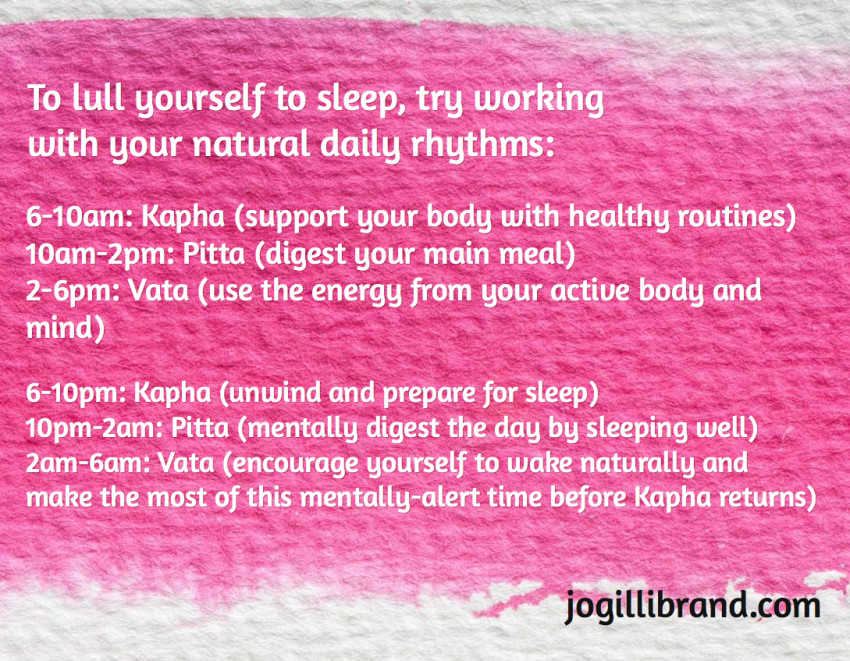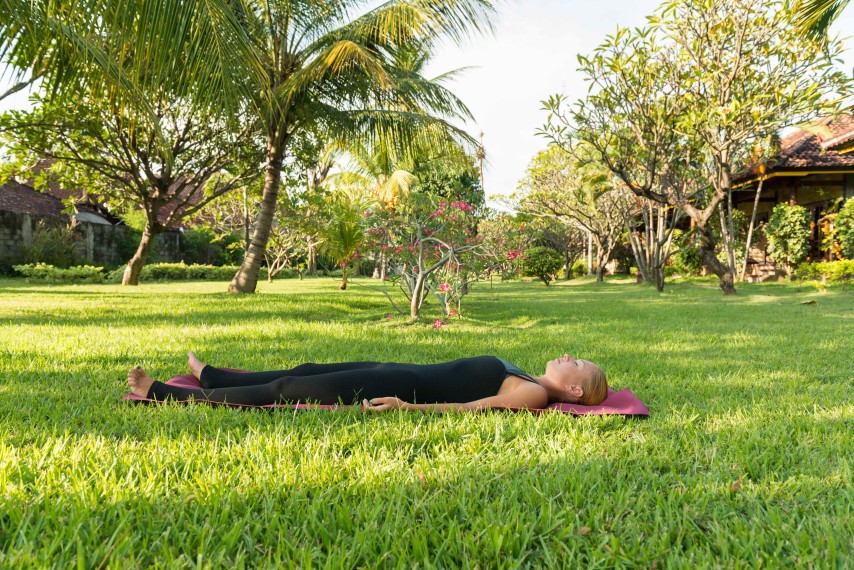Sleep is so important that if you’re not managing a full night of high-quality sleep then the kindest thing you can do for yourself is to make it your top priority. All you need is your own simple sleep strategy, which you can create by following these steps.
Lull yourself to sleep
As mentioned in my previous post (which I encourage you to read if worries are keeping you awake), sleep is a lot like meditation in that it can’t be forced but it can be facilitated. Once you’ve gently related to what’s worrying you, then creating a routine is a great thing to do. All the steps in a routine, when done frequently, will be interpreted by your mind as instructions to wind down and inevitably lead you into a deep sleep.
You may have tried some of these things before, and if that’s the case then recognise that you’re now in a different moment, you’re literally a different person from when you tried them before, so allow for the possibility that something will be different about them this time. I’m recommending these steps because they’ve all made a huge difference to me, my colleagues and my clients.
The elements of your personal sleep strategy
Here are some of the elements of your sleep strategy (adopt them all or pick and mix):
– Work out how much sleep you need. The message from the mainstream media is that we all need a solid 8 hours a night. For many of us, not only is this an impossible dream, but it may not actually be true. In Ayurveda, guidelines for good quality sleep show that we all have our own sleep profile and it changes throughout the year and throughout life. Freeing yourself from the should of 8 hours has the benefit of releasing worry, any sense of deprivation or even feeling annoyed if we’re not getting this supposedly ideal amount. That relaxation brings sleep that bit closer, which is an added bonus.
This personal sleep profile is related to your constitution, or dosha as it’s called in Ayurveda. You don’t need to know exactly what your dosha is to explore how much sleep is the right amount for you (but if you’re curious, you could search for an online quiz). It’s the principle that’s important – feel what’s the right sleep for you, not what suits a ‘standard’.
Not only does your dosha affect your sleep needs, but they’ll change with the seasons. Why try for 8 hours in both summer and winter, when we naturally need fewer hours in summer when the longer days bring more energy, and we need more in the natural down-time of winter?
And if you’re no longer a teenager you probably don’t need the same amount of growth-supporting 10-hour sleep stretches you once did. But you are likely to need more as a middle-aged adult than an older adult.
– These are broad but guidelines which people have been finding useful for thousands of years. And here’s another guideline: Ayurveda recommends being in bed by 10pm. This time is the end of a kapha phase (we naturally want to wind down and relax in the 6-10pm kapha period), and the start of a pitta phase (which is an energetic phase between 10pm and 2am). This helps explain why that ‘second wind’ kicks in around 10pm and we feel we could take on the world or at least get drawn into finishing that long movie. Getting to bed before this energetic pitta phase starts makes sleep more likely.
– Ayurveda continues this theme by recommending that we get up before 6am. If we lie in longer then the second slow, sleepy kapha phase has arrived and we feel groggy for the morning or even the whole day. Of course, there’s something wonderful about a lazy Sunday morning, but it’s a bit too much to handle when we need to be alert on a work-day.
– This 6-10am kapha period is also considered to be the best time to exercise, as the natural energy around at this time supports the development of a stable habit.
– Come off autopilot and set a conscious routine for the whole day designed to help you have a productive and enjoyable day, as well as a good night’s sleep. This framework could include:
- Enjoy caffeine (coffee, tea, chocolate, energy drinks) before noon only, as it can still be affecting you 8 or more hours after drinking it.
- Enjoy alcohol in moderation. It makes us feel sleepy, but it also disturbs sleep in the night.
- Use a fragrance that you find calming to access the more instinctive part of the mind (the reptilian brain, as it’s sometimes called). This by-passes the need for logical thought and will send a powerful signal that it’s time for bed. Massaging your feet with this fragrance will bring the additional benefit of ‘grounding’ you, reducing any agitation that may be felt in the head from a long day of over-thinking and hard work.
- Down electronics before bedtime. TV and other screens flicker at a similar rate to the mind when it’s awake, which is obviously not very helpful when you’re wanting to bring brainwaves down from Beta (the awake state) into the slower Theta rate (which is also the brainwave rate in which meditation occurs).
- Try mentally reviewing your day so that you can resolve anything outstanding (including forgiving yourself and others as best you can for anything that upset you, or at least resolving to do something constructive and compassionate about it tomorrow, after you’ve slept on it).
- As you lie in bed, bring to mind things that have happened today that you’re grateful for. Sometimes the list of things is enormous, and sometimes it’s as simple as being pain-free or simply being alive. It’s often these simpler things that bring the most profound experience of appreciation, which allows the body and mind to relax. If you can drift off to sleep feeling grateful then it is likely to be a powerful contributor to a good night’s sleep as well as a positive start to the next day.
Invite yourself to set the positive intention to play around with these options until you find the right sleep strategy for you, and then stick with it as best you can. Unfortunately, we probably all know people who complain about not being able to sleep, while at the same time unintentionally or neglectfully doing lots of things that undermine good sleep. These might include drinking alcohol to excess, being in front of a computer screen late at night, and zombying out rather than tiring themselves out healthily. The effects of sleep deprivation are so serious that it’s worth the effort to reduce these unsupportive behaviours, and the great benefits of doing so will be felt in no time.
Of course, no situation is perfect. There’ll always be something to get in the way of following your routine completely, and you have the opportunity then to welcome a bit of a change so you don’t get bored. If you’re a shift-worker or regular traveller the difficulties you face in establishing a supportive routine aren’t to be underestimated. That’s when cues become even more important, so consider building the ones that you know will be sustainable whatever the time or place you’re trying to get to sleep. Again, this is an opportunity to play creatively with your circumstances and your own sleep profile.
Questions for you
If you have a sleep strategy, what elements of it are most effective for you? And which of the things I’ve suggested here would you like to bring into your own life?
Want to explore more?
Next, I’ll help you delve into whether your daily activities are tiring you out healthily or simply exhausting you. And, of course, what to do if you want to change.
Sign up for ‘7 Secrets to Sleeping without Stressing’ mini-course delivered via email and to include exclusive offers.






Join the conversation